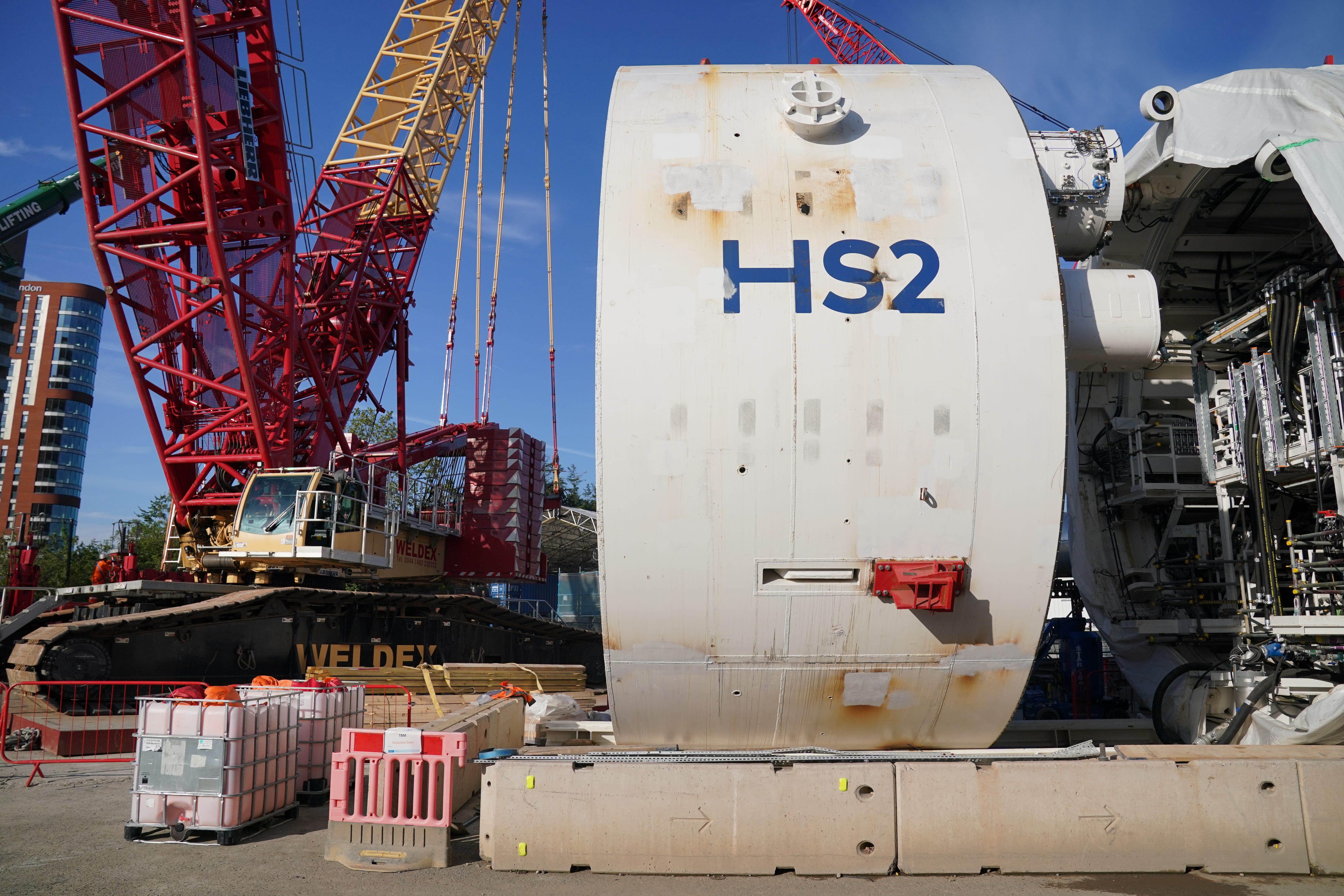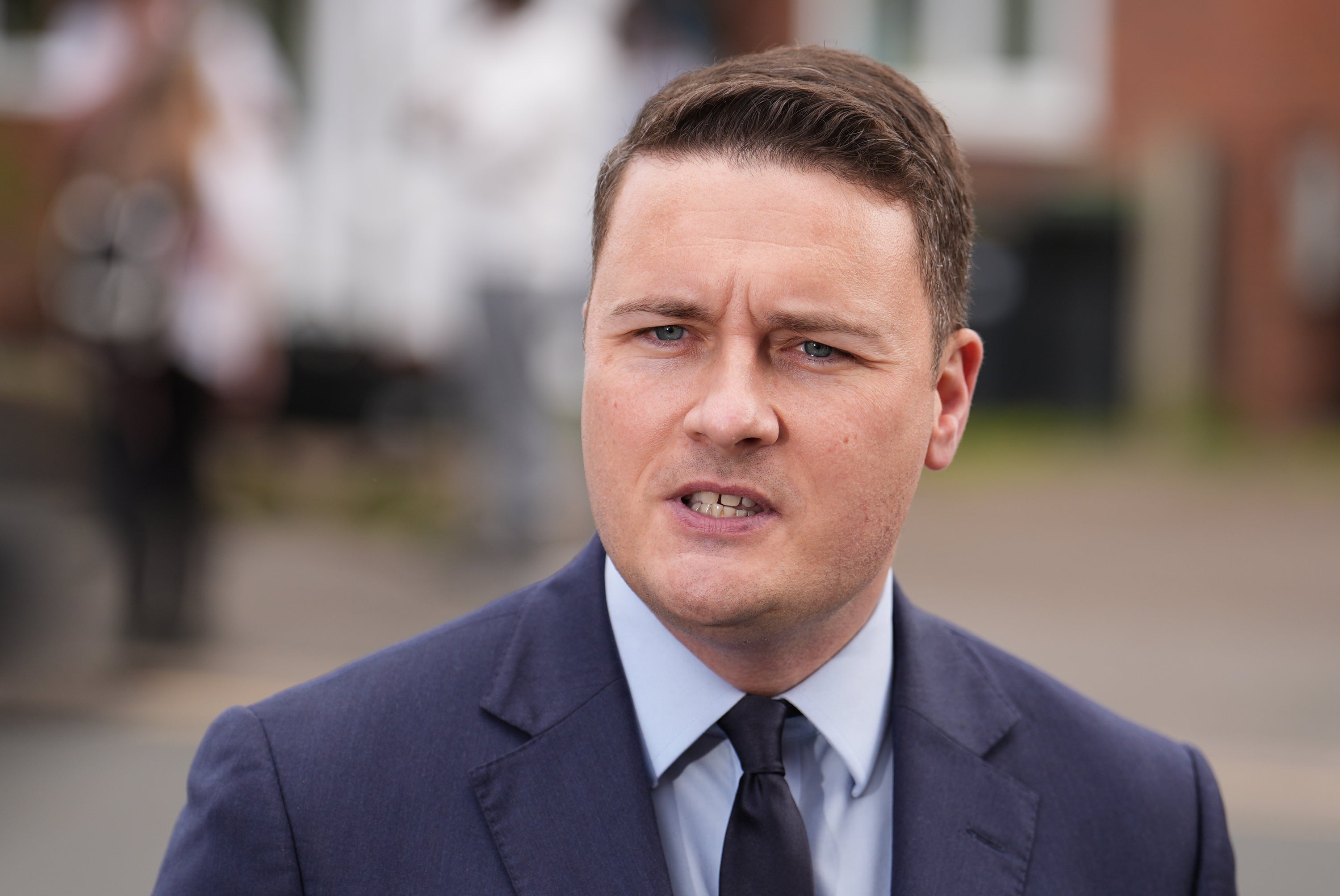What cuts could Rachel Reeves announce to plug Labour’s £20bn ‘black hole’?
HS2, hospitals and railway lines are all rumoured for cut backs
Rachel Reeves will outline her plans to grapple with the government’s £20bn “black hole” in public finances on Monday as she lays out a Treasury report into the state of the nation’s finances.
Laying the blame squarely with previous Conservative administrations, the chancellor is expected to accuse Rishi Sunak’s government of “covering up” spending shortfalls before “running away”.
She will also announce “immediate action” on the issue in her speech, with experts predicting that several cost-cutting measures are likely to be announced.
It is also expected that the chancellor will reveal some tax rises in her first autumn statement to tackle Labour’s spending gap. While the party has pledged not to raise income tax, national insurance or VAT, there are other routes they could take.
Ms Reeves will also share plans to drive “efficiencies” in departmental spending, likely meaning some budget cuts. This will come alongside a pledge to reduce “non-essential spending” on consultants and sell off “surplus” government property which is not in use.
But it is infrastructure cuts that are most likely to boost Labour’s finances in the short-term. These are likely to include the scaling back or halting of projects related to roads, railways and building projects.
Here are some of the key infrastructure cuts Ms Reeves could reveal:
HS2’s last leg in London

Cut back and scaled-down more than once since its announcement in 2012, HS2 may now face another setback. One of the rumoured cost-saving measures Ms Reeves is rumoured to make today is shortening the high-speed line’s route in London.
The change would mean that HS2 will now terminate at Old Oak Common – due to be completed between 2029 and 2033 – rather than London Euston. This would see passengers ending their journeys in north west London, 4.5 miles away from the city centre.
Such a move would involve putting the purpose-built Euston Tunnel on hold. The project, currently under construction, is earmarked to cost £1bn overall.
In 2023, the ambitious HS2 project suffered a major scale-back when Rishi Sunak cancelled its second phase. This was the part of the project that would run from Birmingham to northern hubs like Manchester and Leeds.
While another shortening might save Labour cash in the short-term, Ms Reeves may swerve this option to avoid comparisons to Mr Sunak’s heavily criticised handling of the project.
Stonehenge tunnel

The A303 Stonehenge project will see the A-road which runs alongside the historic landmark converted into a tunnel beneath it, with more lanes.
It is estimated the ongoing project will cost £1.9bn overall, and has reportedly already cost £166 million. It has been subject to legal battles since it was first approved in 2020, with work being cancelled and reopened several times.
National Highways say the project with drastically reduce travel times along the stretch of road from about an hour to just eight minutes. Campaigners argue the project will irreversibly damage Stonehenge’s surrounding landscape, which also has archeological value.
Putting the project on hold again would likely frustrate developers and groups such as English Heritage, who have backed the plans. However, such a move could save the government up to £2bn over the next five years.
Reopening 45 railway lines
In 2019, Boris Johnson’s government pledged to restore railway lines that were scrapped during swingeing cuts in the 1960s. Further updates in 2020 and 2022 pledged £500 million for the project, and detailed the 44 new routes which were earmarked for reopening.
The routes span across the UK, with 23 having funding confirmed, 13 being developed further, and seven underway. One line was reopened in Dartmoor in 2021, costing £40.5 million.
Scaling back the scheme on hold could save the government just under £500 million, depending on whether projects already underway are included. Several lines are due to be reopened this year or next.
40 new hospitals

In their 2019 manifesto, the Conservatives pledged to build 40 new hospitals by 2030. The ambitious target was picked up by Labour in their 2024 offering – but now looks to be set for cutting back.
Speaking last week, health secretary Wes Streeting said the pledge was a “cynical ploy” by Boris Johnson’s government to “deliver false hope.”
“It’s painfully clear that the previous government’s New Hospital Programme, that said they would deliver 40 new hospitals by 2030, is not deliverable in that timeframe,” he said.
It’s likely Ms Reeves will confirm his statement today, and announce a scaling back of the plans. A report from the National Audit Office last year showed that the project was set to fail.
The spending watchdog says that only 32 projects were on track to be completed by 2030, only eleven of them qualifying as “whole new hospitals.”
According to a report from the Department of Health last year, the scheme was set to represent £20 billion in investment.
Join our commenting forum
Join thought-provoking conversations, follow other Independent readers and see their replies
Comments
Bookmark popover
Removed from bookmarks